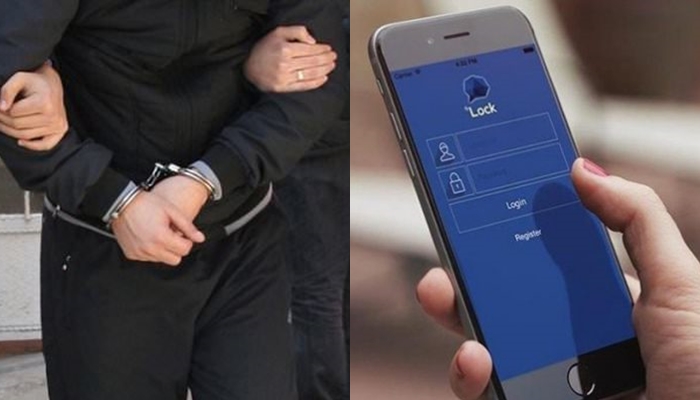Despite a ruling from the European Court of Human Rights (ECtHR) that found use of the ByLock smart phone application not to constitute a criminal offense, Turkish police on Thursday detained 21 people due to their alleged links to the Gülen movement, the Bold Medya news website reported.
In an İstanbul-based operation prosecutors issued detention warrants for 23 people across five provinces, 21 of whom were detained in police raids on Thursday. The detainees are accused of having links to the Gülen movement due to their use of ByLock.
The ECtHR ruled in July 2021 in the case of former police officer Tekin Akgün that use of the ByLock application is not an offense in itself and does not constitute sufficient evidence for arrest. The Strasbourg court’s ruling came as a source of hope for thousands of people who were arrested or sentenced on terrorism charges based mainly on a National Intelligence Organization (MİT) report that detailed users of ByLock. However, detentions and arrests based on ByLock use continued unabated in Turkey.
ByLock, once widely available online, has been considered a secret tool of communication among supporters of the faith-based Gülen movement since a coup attempt on July 15, 2016 despite the lack of any evidence that ByLock messages were related to the abortive putsch.
The Gülen movement is accused by the Turkish government and President Recep Tayyip Erdoğan of masterminding the failed coup and is labeled a “terrorist organization,” although the movement denies involvement in the coup attempt or any terrorist activity.
In Akgün’s case, the ECtHR ruled that Turkey violated Article 5 § 1 (right to liberty and security) of the European Convention on Human Rights as well as Article 5 § 3 (entitlement to trial within a reasonable time or to release pending trial) and Article 5 § 4 (right to a speedy decision on the lawfulness of detention) in the pre-trial detention of Akgün, who was jailed in October 2016 as part of a massive crackdown launched by Turkey’s Justice and Development Party (AKP) government on alleged and real followers of the Gülen movement.
The European court also ordered Turkey to pay Akgün 12,000 euros in non-pecuniary damages and an additional 1,000 euros for costs and expenses.
In 2017 Turkey’s Supreme Court of Appeals found the use of ByLock to be sufficient evidence for terrorist organization membership. Since then, the appeals court has upheld hundreds of sentences passed by local courts based mainly on ByLock use without checking to see if the user had any message content or if the messages had any criminal content.
The Constitutional Court, too, found no violation of rights of applicants who were sentenced merely based on ByLock use, which it had considered a strong indication for arrest.
The ECtHR’s judgment supersedes the Supreme Court of Appeals and Constitutional Court’s decisions.
The UN Human Rights Council’s Working Group on Arbitrary Detention stated in October 2018 that detention, arrest and conviction based on ByLock use in Turkey violated of Articles 19, 21 and 22 of the International Covenant on Civil and Political Rights.

